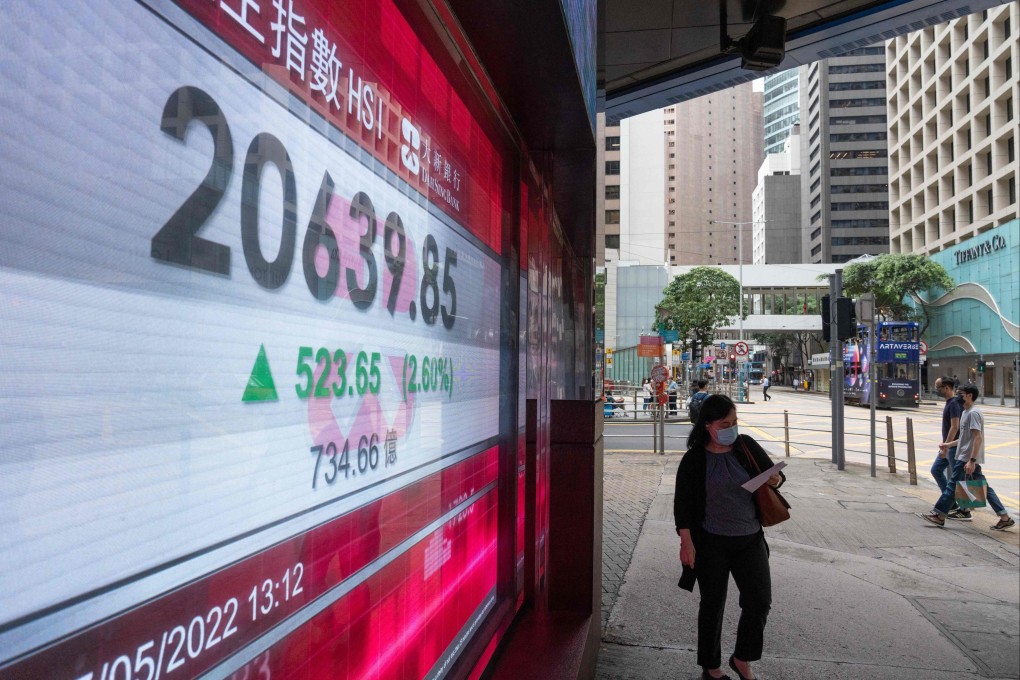Hong Kong stocks jump by most in three weeks as lower-than-expected US inflation eases rate-hike fears
- Worry about an out-of-cycle rate hike receded after US inflation slowed to 8.5 per cent in July, down from a four-decade-high of 9.1 per cent in June
- The Hang Seng Index shook off three days of losses, with Techtronic Industries, Sunny Optical, Li Ning and Alibaba among the biggest gainers

The Hang Seng Index advanced 2.4 per cent to 20,082.43 at the close of Thursday trading, shaking off three consecutive days of losses totalling 3 per cent. The Tech Index gained 3.7 per cent, while the Shanghai Composite Index rose 1.6 per cent.
Alibaba, the owner of this newspaper, strengthened 4.3 per cent to HK$91.75. Sunny Optical added 9.2 per cent to HK$121.50 and Li Ning gained 7.1 per cent to HK$66.90. Haidilao climbed 4.5 per cent to HK$15.72 while Techtronic Industries soared 10.9 per cent to HK$96.45.
US headline inflation was 8.5 per cent in July, down from the four-decade-high of 9.1 per cent in June. That came in below expectations and sent stocks soaring, with the S&P 500 hitting a three-month high.
The data showed that “US inflation is still a big problem, but the problem is perhaps getting smaller”, said Peter Esho, co-founder at Wealthi in Sydney, a property investment company. “We think central banks will soon ease, let things level off, maintain talk of more rates coming, but they won’t probably have to do as much heavy lifting as they wait for things to adjust.”
This makes it “a great time” to buy undervalued, resilient and income producing assets, he added.
